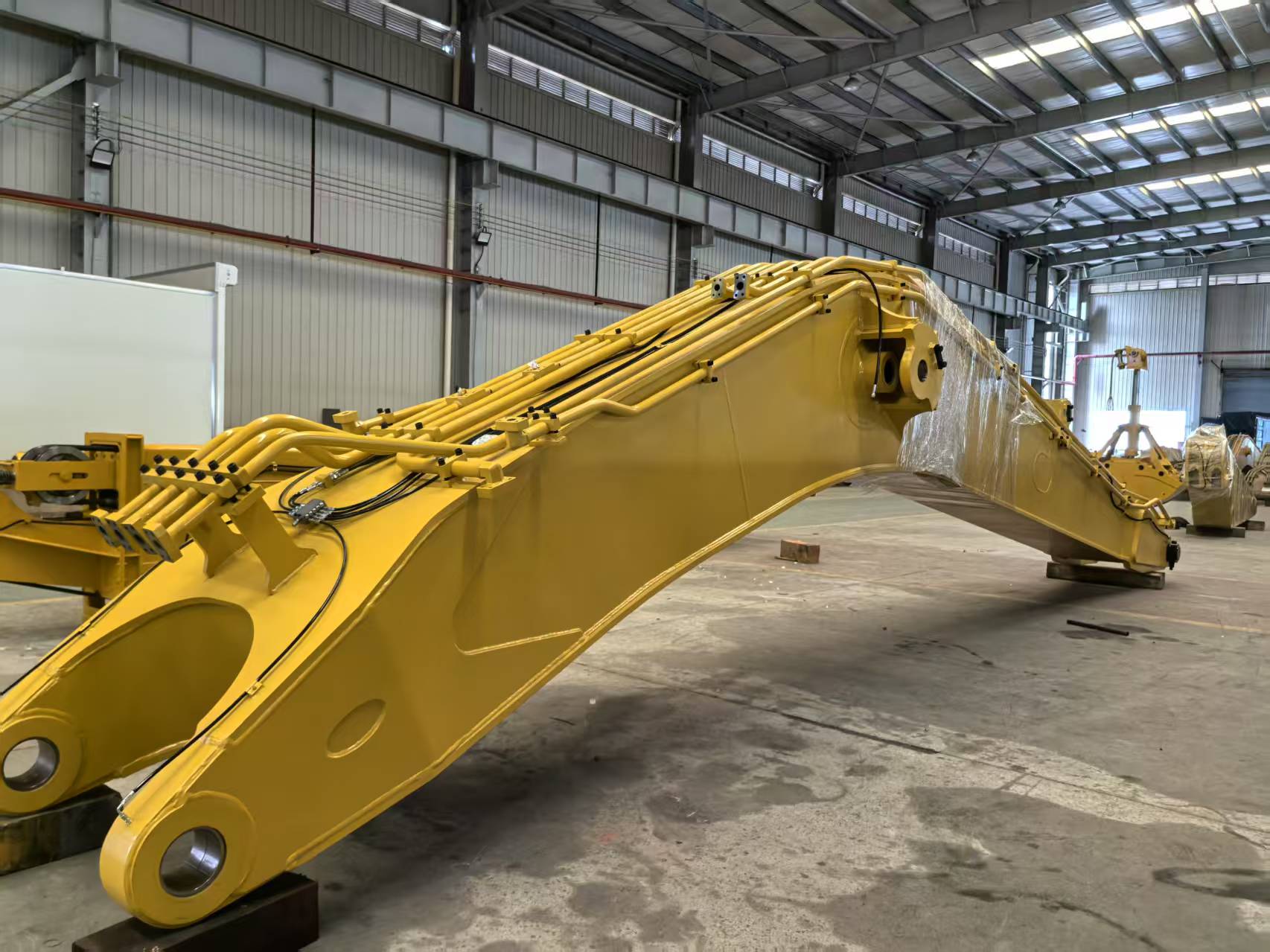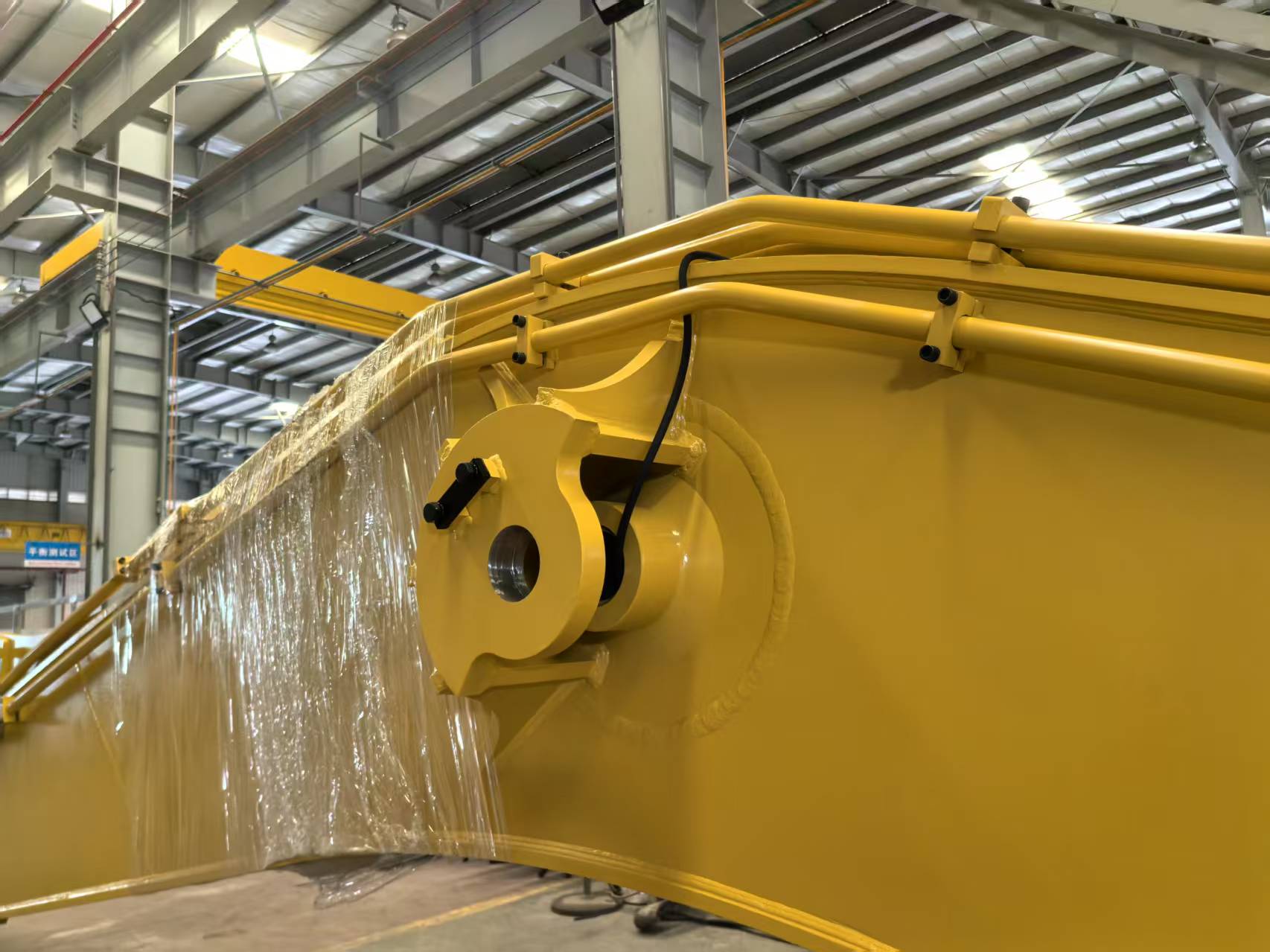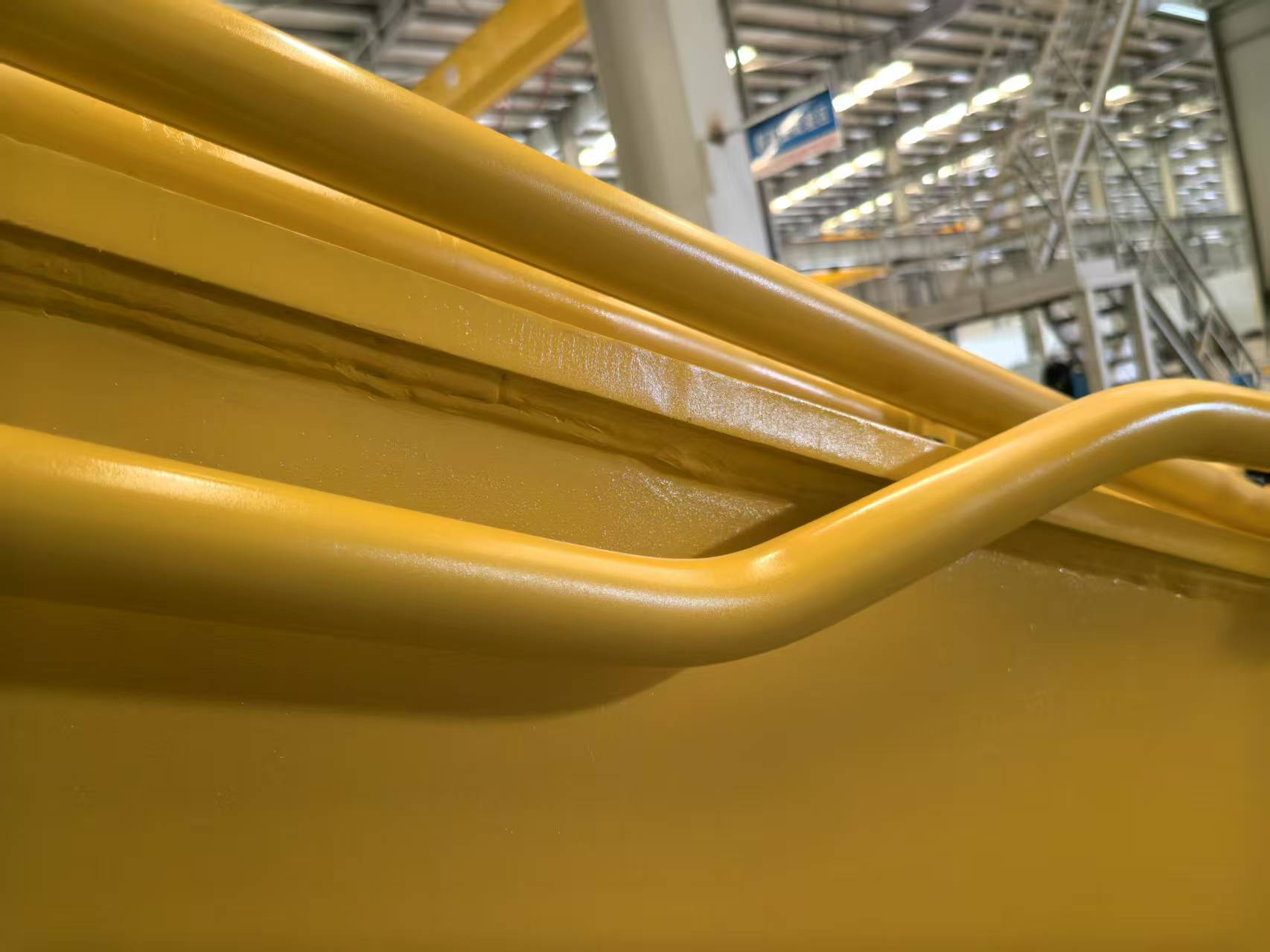 HuiTong
HuiTong  2025-06-13
2025-06-13
As an important equipment in modern construction and mining operations, the efficient hydraulic system of excavators is the key to ensuring the smooth progress of work. As the core component of the hydraulic system, hydraulic pipes for excavators long boom not only need to withstand the flow of high-pressure liquids, but also adapt to complex working environments and dynamic loads. How to choose suitable hydraulic pipes, how to replace them correctly, and how to avoid hardness changes caused by bending pipes are all important links to ensure the long-term and stable operation of excavators. This article will discuss these issues in detail and provide practical solutions.

When selecting hydraulic pipes for excavators long boom, the material of the pipe is crucial. Common materials include carbon steel and alloy steel, etc. These pipes need to have sufficient strength and toughness to adapt to the environment of high-pressure liquid flow. For general working conditions, carbon steel seamless pipes are usually able to meet the needs, but for some special and high-intensity use environments, alloy steel pipes can provide better wear resistance and corrosion resistance. For example, alloy steel seamless pipes perform particularly well under high pressure and high temperature environments, which can significantly extend the service life of hydraulic pipes.
The specifications of the hydraulic pipes for excavators long boom, including pipe diameter, wall thickness and length, are directly related to the flow and pressure stability of the hydraulic system. A pipe diameter that is too small will cause poor fluid flow and increase the system load, while a pipe wall that is too thick will cause excessive weight and affect the operating efficiency of the hydraulic system. Therefore, when selecting a pipeline, the specifications must be accurately selected based on the design requirements of the hydraulic system. Especially in hydraulic systems that are subjected to high pressure, the wall thickness of the pipeline needs to have sufficient load-bearing capacity to avoid pipeline rupture or leakage.
Excavators usually work in harsh environments, especially in open-air, hot, humid or dusty workplaces, so hydraulic pipes for excavators long boom need to have good corrosion resistance and high temperature resistance. To this end, in addition to selecting alloy steel pipes with excellent corrosion resistance, the corrosion resistance of the pipeline can also be enhanced by technical means such as coating or heat treatment. For hydraulic systems operating in high temperature environments, the selection of high temperature resistant materials is particularly important, which can prevent the hydraulic pipe from deforming or aging at high temperatures, thereby ensuring the long-term stable operation of the system.
Hydraulic pipelines for excavators long boom must not only withstand high pressure in the system, but also have certain strength and hardness. When selecting pipes, the tensile strength, yield strength and hardness of the pipeline must meet the standard requirements to avoid brittle fracture caused by excessive hardness of the pipeline, which affects the safety and stability of the system. Therefore, when selecting materials, the strength and toughness of the pipeline should be comprehensively considered to ensure the stability of the pipeline under high load.
Before replacing the hydraulic pipes for excavators long boom, the pressure of the hydraulic system must be released first. The hydraulic system is under high pressure during operation. If the pressure is not completely released, it may cause leakage or accidents during the replacement process. Usually, the system can be kept in a zero pressure state by closing the valve of the hydraulic system and using an oil drain device for pressure discharge.
When replacing hydraulic pipes for excavators long boom, it is necessary to ensure that the new pipes and all connecting parts are kept clean to prevent any impurities from entering the hydraulic system. The cleaning work should not only pay attention to the inner and outer surfaces of the pipes, but also carefully check the connectors to ensure that there is no dirt or debris left. Any small impurities entering the system will affect the normal operation of the hydraulic system and may even cause system failure.
After installing the new pipe, you need to carefully check the sealing of the joints. The joints of the hydraulic pipe are prone to leakage, so make sure that all seals, gaskets and threaded connections are tightened in place and there is no oil leakage. You can use hydraulic oil or sealant to test to confirm that there are no problems with all connections.
The connection tightening torque of the hydraulic pipes for excavators long boom is very important. During installation, if the connection is not tight enough, the pipe will loosen and cause hydraulic oil leakage; while over-tightening may damage the pipe or seal. Therefore, the appropriate torque should be used for tightening according to the manufacturer's standards to ensure the safety and reliability of the pipe connection.
After replacing the hydraulic pipes for excavators long boom, be sure to perform a pressure test to ensure that the system is working properly. During the test, observe the operating status of the system and check whether there are leaks or abnormalities in each joint, pipe and valve. If any problems are found during the test, they should be adjusted and repaired in time.

Hydraulic pipes for excavators often need to be bent during use. However, bending often causes changes in the local hardness of the pipe, which affects the performance of the pipe. In order to reduce the impact of bending on hardness, the following measures can be taken:
Bending operations require the use of appropriate bending tools. Manual pipe benders are prone to uneven bending, which in turn causes changes in the local hardness of the pipe. Using professional tools such as hydraulic pipe benders can ensure that the stress is evenly distributed when the pipe is bent, thereby avoiding the impact of hardness changes on pipe performance.
When bending pipes, too fast a speed may cause excessive stress in the local area of the pipe, which in turn causes a sharp change in hardness. Therefore, the bending speed should be controlled to avoid deformation of the pipe or excessive hardness due to too fast operation.
For some important pipes, especially the bending parts, heat treatment or annealing processes can be used to restore their original toughness and strength and reduce the hardness changes caused by bending. This method can effectively improve the durability of the pipe, especially under high-load working environments.
After the pipe bending operation is completed, the pipe must be hardness tested to ensure that the hardness of the pipe meets the standard. If the hardness of the bent part is found to be too high, it can be post-processed through annealing and other processes to restore its performance.

The selection and replacement of hydraulic pipes for excavators long boom are crucial to the performance and safety of excavators. By selecting suitable pipe materials, specifications and hydraulic pipes with strong corrosion resistance, and following strict installation specifications during the replacement process, the working efficiency and service life of the excavator can be effectively improved. For the hardness changes caused by the bending operation, professional tools, reasonable speed control and heat treatment can be used to minimize the impact on the performance of the pipe and ensure the stable operation of the hydraulic system under high pressure.